
by Jonathan Manafo | Jan 20, 2016 | Sunday Conversations
Some might say that our life is made up of squares – lots of them. We fill them in with appointments and work and events. Some of us fill up every square and others of us try and leave as many of them as possible empty.
 When talking about simplifying our life, we can’t really get too far into the conversation before mentioning our calendars and schedules. Our lives move forward (time wise) with every passing minute, hour, day and week. We can plan those minutes well or let them slide by into the past, never to be used again.
When talking about simplifying our life, we can’t really get too far into the conversation before mentioning our calendars and schedules. Our lives move forward (time wise) with every passing minute, hour, day and week. We can plan those minutes well or let them slide by into the past, never to be used again.
We are so busy!!! At least that’s what we tell ourselves and others. Isn’t funny when we’re asked how we’re doing, the most common answer is, ‘I’m so busy’. It’s almost like we’re bragging. You hardly ever hear someone say, ‘life is great, I’m really finding my rhythm, I’m experiencing a good balance between home and work and play, can’t really complain.’ What a boring answer right? One writer says when we respond without thought with ‘I’m busy’ that it feeds something unhealthy in us.
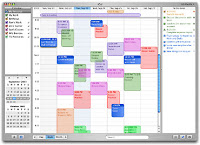
There are two approaches to time, we either use our calendar to help us steward our time or we let other things and people control how we use (and lose) our time. What if we saw our calendar as the primary tool to help us become who we want to be; more importantly, who God wants us to become.
In Ephesians 5, Paul says these words about time and opportunity, “Be careful then, how you live, as wise and not unwise, making the most of every opportunity.” What’s he getting at? Be thoughtful how you invest your time, your days, your lives. In light of this verse, we can ask one simple (or not so simple) question, ‘What if God were in charge?’ Bill Hybels says, ‘the thoughtful arrangement of your daily and weekly calendar is one of the holiest endeavors you can undertake.’ and ‘our schedule is far less about what we want to get done, and more about who we want to become.’
Let’s be honest, our schedules are very connected to our character and personality. We approach things by the way we’re wired. Some of us are morning people, some night people, some of us need naps, others not much sleep. Historical figures are great examples of this. Many of them worked within strange schedules, but it worked for them. One thing is for sure, our calendars need to match up with our values; with who we want to become. Jesus was the best example of this. Gordon MacDonald puts it so well; he says Jesus’ schedule was dictated by three things:
1) he understood his mission (Luke 19:10)
2) he understood his own limits (Mark 1:35)
3) he took time to invest in others
Time, like money, must be budgeted.
It’s in scarce supply and
must be used wisely.
Ask yourself this, what will it take or what does my schedule have to look like to be…
– a better friend
– a better spouse
– a better parent
– a good neighbour
– an awesome employee
– a better follower of Jesus
In order for us to become who God wants us to be we have to consider a few things in regards to our schedule.
Get the important stuff in first.
We’ve all heard the metaphor about the Mason Jar, the one about getting the big rocks in before you add the small rocks and pebbles. As old and worn out as that illustration is, it’s still very true. If we don’t plan to pray or to read or to spend time with family or to get the education we need, it may never get into our overwhelming schedule.
Fill the squares with words that reflect your plan and your purpose.
John Grisham, before he was known for his novels, was a lawyer. John had a dream to be a writer, so he included the word ‘WRITE’ in the hour square just before his work day started. He would go into work an hour early to write. He stuck to this schedule, and wouldn’t you know it, he became one of the most popular novelists of the late 90’s and 2000’s.
What words need to get into your calendar so they become sacred to you? READ, PRAY, FAMILY, HOME, RUN, DATE NIGHT, etc?
Make room to hear God’s whisper in your life.
Both Bill Hybels and Tony Campolo start their day with prayer. Hybels describes it as rolling out of bed and onto his knees. Campolo says he simply lays in bed for the first 20 minutes and prays. Are you making room for this in your life? If you want to know God more and desire that your life looks more like the life of Jesus, I’d suggest you make time for prayer and scripture. No other way to say it.
If you want to be intentional about your calendar being a tool to help you become who God wants you to be, here’s a final suggestion of what you should consider as non-negotiables to fill some of the squares in your life:
1 – make time to connect with God
–
church, a few minutes a day of reading and
prayer, small group, …
2 – make time with your Family
–
date night, play night, movie night, vacation, …
3 – make time to do good work
–
a plan to get better, to get ahead, to network
more, etc…
4 – make time for Recreation
– a plan to get better,
5 – make time to Exercise, sleep well & eat well
“Be careful then, how you live, as wise and not unwise, making the most of every opportunity.”
– – – – – – – – – – – – – – – – – – – – – – – – – – – – –
small(er) group discussion:
When you think of your calendar what words come to mind?
When you’re asked how you are doing, do you find yourself often responding with, “I’m busy” or a similar phrase? Why? How does it make you feel?
Take time to read Ephesians 5:15. Does this challenge you in any way? If so, how?
What are some squares in your life that need rearranging? Which ones may have too much value? Which ones may have too little value?
Do you have prayer or reflection or scripture slotted out on your schedule? Why is it tough for some people to be committed to a few minutes a day?
Pray about being intentional with your time. If certain people in the group share about ways they want to simplify or grow in their time management, pray for that tonight. And pray that we would make time to become who God wants us to be.
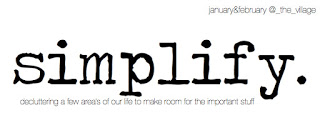
by Jonathan Manafo | Jan 14, 2016 | Sunday Conversations
During my teenage years my mom would regularly ask me to clean and declutter the garage; by regularly I mean every six months. She wouldn’t ask my brother, or my sister, or my dad, only me. Let me tell you, our garage needed decluttering. It was a mess on good days. It would get so bad that you couldn’t walk through it without feeling like you were in an obstacle course. I’ve come to realize there are two kinds of people, those with perfectly clean garages and those with very messy garages. You’d figure with all the practice I had that I’d be in the first group, but nope, my garage gets messy – really messy. However, when I clean it, it transforms in a spotless space, and my mom would still be very proud.
 I’m sure you don’t have too look to deeply inside your heart and life to see and admit that our lives get as cluttered and crowded as some garages do. We let so many things into our life that things can’t help but get chaotic.
I’m sure you don’t have too look to deeply inside your heart and life to see and admit that our lives get as cluttered and crowded as some garages do. We let so many things into our life that things can’t help but get chaotic.
How many people do you know use words like this to describe how they’re feeling? Exhausted, tired, overwhelmed, over-scheduled, anxious, etc. This describes the rich, the poor, men, women, liberals and conservatives. It doesn’t matter who you are, things in your world get crazy. At some point we have to take stock at how things are going and make some decisions to simplify our lives.
Simplicity is a way of life, a calling, a certain way to
balance all that life throws at us, by stewarding our time, our thoughts, our
money, our gifts, our skills, our calendar, our emotions, our everything.
What if we could end each and everyday with gratitude for how we invested our day? Knowing that in each and every moment we chose what was best.
Simplifying takes work – it’s rigorous and hard, but worth every bit of the pain and discipline.
For those of us who are discovering what it means to follow Jesus, the purpose of simplification comes down to one thing, hearing the whisper of God in our lives.
In Luke 10 we read a very short, but powerful story about Jesus and his disciples finding themselves at the home of two women, Martha and Mary. Martha, as would have been first century custom, was preparing some food in the kitchen, Mary on the other hand made her way to the other room with Jesus. Martha comes over and gets mad at Mary…and Jesus. She actually asks Jesus if he cares – that’s quite the accusation for a man who would eventually sacrifice his life for the whole world, Martha included. She’s mad at Mary for not helping her with the food. Jesus, with kindness and wisdom, responds to Martha with these words, “a few things are needed…indeed, only one…”
Martha wasn’t sinning by making food. Martha wasn’t doing even doing something wrong. Martha did what she thought she should be doing. Jesus simply wanted to help Martha capture the moment. You see, in that very moment, the best use of her time was not cooking, the best use of her time would’e been to join Jesus and listen to his words (of life). Mary, at least in this moment, got it. Not only did get it, but she broke a cultural boundary in the process. Mary stepped out of the ‘place/space for women’ (the kitchen) and walked into the living area (where the men gathered)*. Think about the cultural significance of this choice – it was quite risky and gutsy. Martha didn’t know what do with it. Jesus takes this moment to affirm Mary’s choice. (these and other things often got Jesus in trouble…good kind of trouble)
Jesus wants to help us simplify things. He invites us to choose well in every moment; to unclutter what’s gotten in the way of us truly living so we are able to hear and listen to his voice.
For the next 7 posts (Sunday’s) we will look at how we can simplify the most important things in our life: finances, schedules, relationships and decisions. However, lets get to the most important part of this conversation first – Jesus asks us, like he does to Martha, to get this first decision right, to choose him. We will always be faced with decisions to choose well in every moment. This happens with our families, with our work, and with our health. Those are all important things. But to get those things right, you gotta get this first thing right – choose Jesus.
Is it hard to make time for this? Yes. Does it take some effort to put aside time to read scripture, pray, and gather with community? Yes. Was it extremely difficult for Mary to cross a social barrier to be with and learn from Jesus? Oh yes it was. Is it all worth it? For sure.
Simplifying is about choosing the right things in your life. Jesus is the first and most ‘right’ thing for any of us. Choose well.
* In the first century, there were only two places women and men were together socially, in the yard with their children or in the bedroom with each other. In every other setting, men and woman remained separate. In Luke 10, Martha was where she thought she should be. Mary, on the other hand, went into the room where only men gathered. You can imagine how this looked, what it stirred, and how risky it all was. But Jesus, among the many things he was known for, was well known for being willing to break down barriers. Mary must have felt quite the stirring in her heart to take the kind of step she did. Unfortunately, we still see some of these inconsistencies in human rights today. I’m so glad that Jesus calls us to break away from those misconception and live in full harmony with one another.
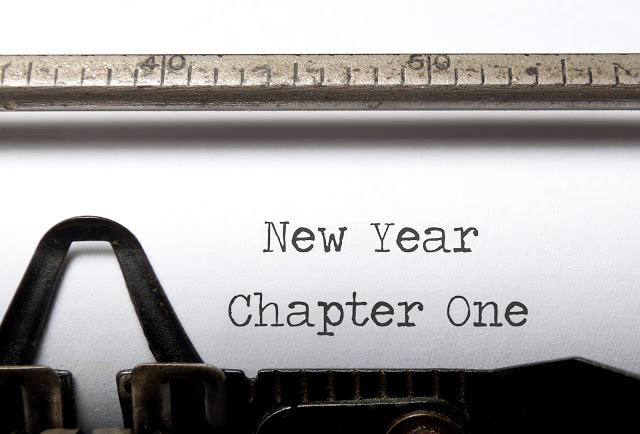
by Jonathan Manafo | Dec 31, 2015 | Sunday Conversations
It’s the last day of the year. This day creeps up on us…oh…every year. It never fails. We are given one day to look back before we cross over to what is a New Year. Does it really matter? Can we be defined by a day on the calendar? Should we even stop to reflect or are we allowed to simply let the day pass without thought or care?
I think days like this are important. We should take advantage of each moment that forces us to reflect on what was, and look ahead to what will be (or what can be). For some it’s birthdays, for others it’s the new school year, for some it’s spring time, but for everyone it’s December 31. New Year’s Eve is your last chance to look back with the purpose of looking forward, because before you know it, somebody at Toronto’s City Hall or New York’s Time Square is screaming ‘HAPPY NEW YEAR’ and at that moment the line has been crossed, and ready or not a New Year has arrived.
Here’s the question – what are you looking forward to? Have you thought about it? Are you sad to see 2015 gone or are you desperately waiting for something new? Our reflections can’t all be the same, but what is the same is the line we cross on days like this. Something else can and should be similar – our expectation to see and experience what God may have for us this coming year. May our pray be the same, that God would do a new thing in us and a new thing through us.
May these words from Isaiah ring true for us…This is what the Lord says – he who made a way through the see, a path through the mighty waters, “Forget the former things; do not dwell on the past. See, I am doing a new thing! Now it springs up; do you not perceive it? I am making a anew way in the wilderness and streams in the wasteland.” (Isaiah 43:16,18,19)
Whatever this year may hold for you, may God be in the middle of it. Whatever may be on the horizon, may you sense God’s presence in a fresh and deep way. Whatever circumstance, may God move us forward from where we were to where we ought to be. May we be light in dark places and peace in tough spaces. May we show grace and love to our world. May God’s blessing be so evident in how we live.
“The Lord bless you and keep you;
the Lord make his face shine on you and be gracious to you;
the Lord turn his face toward you and give you peace.” (Numbers 6:24-26)
Happy New Year
The Village
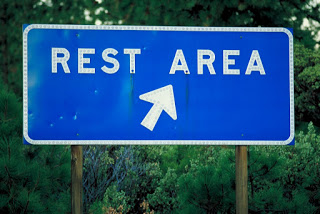
by Jonathan Manafo | Nov 16, 2015 | Sunday Conversations
Almost every tool we use needs some kind of rest. We shut them off, we recharge them, we reboot them. The need is real when you wake up in the morning and realize that you didn’t recharge your phone – it’s not a pretty sight is it. The funny thing is that we are quick to recharge batteries and phones and computers, but we don’t always shut ourselves off. Some recent surveys suggest that there is more self-imposed overtime these days than ever before. We are busy and we don’t care, because if we’re honest, it makes us feel better about ourselves. Busy is our standard answer to the common question, ‘How are you doing these days?’. However, as Eugene Peterson says, “Business is maybe the most vocation-destroying condition that there is.” How do we find a balance between working hard and resting well? How can we appreciate the work we are called to do while not neglecting our bodies and our minds?
Seems like God had a great idea when he created Sabbath. When we started this series we said that God was our first and best example of work. Interestingly, God is also our first and best example of rest. In the beginning…there was REST. Genesis 2:2-3 says that God, after working for six days, blessed the seventh day and made it holy. God called all the other days good, but this day of rest he called holy. God stops. God creates a finish line. God punches out and says, I’m done, for now. He didn’t do it for himself, because he was tired, he did it for us, to show us that stopping is just a important as working. In other places like Exodus 16 and 20 and 31 we are reminded how important this was to God and to his people, Israel.
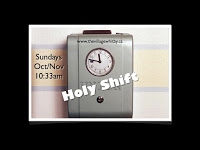
Shabat means to stop, to cease, to desist. God’s invitation to participate in Sabbath was an invitation to stop what we are doing, stop working, stop producing, and to be reminded of the things that are important, mainly, Him, his covenant, and the people he’s placed in our lives to do life with (family, friends, community). This became for Israel both a practical way to live, while also being their philosophical identity – who they were in comparison to other nations. In Deuteronomy 5 we see that Sabbath was also a reminder that Israel were no longer living like slaves in Egypt. Sabbath was a weekly reminder that they didn’t have to go at it 24/7 any more; no one was forcing them to work all day, every day. God’s people would be different, they could stop producing and begin trusting…in God.
As much as Sabbath was intended for people, God also intended it for land and agriculture. You can read about this in Leviticus 25 & Deuteronomy 15. Israel is told to work the land for six years and let it rest on the seventh. Not only would they trust God to have enough, they’re also encouraged to give to those in need from their abundance. Sabbath had much to do with justice and generosity as it did with replenishing vessels, either human or earthly.

When we jump to the New Testament we find Jesus pushing back from religious leaders who want to force him to be strict about the Sabbath. Jesus, being a good Jew and Rabbi of course observed the Sabbath, but he wanted his followers to know that the Sabbath was there to serve them/us, not the other way around. What would be the use of being enslaved to a law that is meant to remind people that they don’t have to live in slavery any longer. In light of that, we can feel good about discovering some kind of Sabbath in our lives, without the religiosity or legalistic approach that some faith people attach to it.
So…in 2015, how can we appreciate and invite a principle that was instilled and created so many centuries ago? Great question. First know this, Sabbath is about people stopping long enough to be reminded about what is important to them in life. Those things should be Jesus, family, friends, community, etc. A few things to think about…
Sabbath is about Rhythm
Having a healthy rhythm to your life is so important. God’s idea of Sabbath leads us down that path. Feeling good about working hard while taking the right time to stop is the best way to live in balance. What kind of things add to our healthy Rhythm? Prayer, Scripture, Gathering in Community, Loving your neighbour, Working Hard, Playing Hard, Enjoying Family & Friends.
Sabbath is about Trusting God
By putting a stop to production we are reminded of something that is so important: We are not God. God provides for us. Sure we work hard and earn a pay check, but God is the one behind it all. Working without resting messes with our heads and gets us thinking that the world revolves around us. It doesn’t. It revolves around God. Rest/Sabbath actually makes God bigger in our eyes. Abraham Heschel writes, “The world has our hands for six days, but our souls belong to someone els”.
Sabbath is a Gift
Sabbath isn’t a reward for finishing on time or doing a good job; it’s an intermission in the middle of an ongoing game. Sabbath is like a boss who shows up with coffee and says, “Break Time”. Time is not a possession we own but a gift we are given to use and steward. It’s like money, it’s not ours to hoard, but ours to use wisely.
Sabbath is an Investment
Unlike sleep that forces itself on us, Sabbath has to be invited and welcomed. It’s not about a day it’s about an attitude. Start small: Pray a few minutes a day, not for stuff or requests, but simply to enjoy God and be thankful for what you have – Sit down for dinner without any distractions and simply enjoy your family – Enjoy the church community you’re a part of; when you gather, connect deeply – Find leisure activities that fill you up. Sabbath isn’t just about church, it’s about life; it’s an investment into your faith, your family, your community, yourself.
Before closing this post, pause to read these few texts. Breathe in and breath out and rest in God.
Be Still and Know that I am God (Psalm 46)
My soul finds rest in You (Psalm 62)
Come to me, you who are tired, and I will give you rest (Matthew 11:28)
– – – – – – – – – – – – – – – – – – – – – – – – – – – – –
small(er) group discussion
What resonated with you in this post/talk? What was difficult for you to digest?
Do you see Sabbath as an important principal that is too hard to follow or an old law that is outdated and unpractical?
Why do you think God called the 7th day holy? What’s holy about about rest? What’s holy about reflection? (Genesis 2:2-3)
Deuteronomy 5:15 says “Remember that you were slaves in Egypt and that you were brought out of there with a mighty hand and an outstretched arm. Therefore the Lord your God has commanded you to observe the Sabbath day.” Do you ever feel like you’re a prisoner of your job? What does this say about deliverance and being enslaved to your job or work?
What advice would you offer your small group as helpful ways to instil ‘sabbath’ moments into your life? How does one see Sabbath as Jesus did, a gift to serve us, not a law to be rigorous about?
What would you say about these two quotes on busyness?
“Busyness is maybe the most vocation-destroying thing there is”
“Busyness makes us stop caring about the things we care about.”
Some kind of Sabbath in our lives is healthy if we see it as a way to instil…
Healthy Rhythm/Balance
Trust in God
Seeing time as a Gift
Ways to invest in Faith, Family & Community
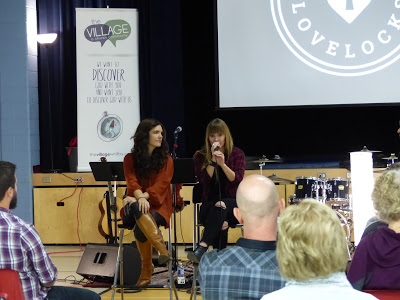
by Jonathan Manafo | Nov 11, 2015 | Sunday Conversations
This past Sunday we switched things up a little bit by hosting a main stream country duo, The Lovelocks. If you were there, you know that it was a whole lot of fun. Of course their music and vocals were outstanding, but so were the things they had to say about their faith and their calling to be musicians in the country music world. (And it’s worth noting at this point that The Village is totally blessed with stellar music every week…our band rocks!!!)
A few things stood out from the interview. Here are some highlights…
– Ali (violin/vocals) was introduced to Jesus through a youth pastor (pentecostal/evangelical) who began working in her United Church. This person introduced Ali to a faith that included a personal relationship with Jesus. It’s amazing how one can be part of a certain kind of church and miss the point of Christianity all together, it’s Jesus.
– Zoe was somewhat the opposite, she had grown up in a charismatic (perhaps pentecostal) church community and become numb to it all, after her time in college she discovered what it meant to really follow Jesus.
– They both eventually landed at The Meeting House (a church we actually network with) and through music, both served and even worked at this local church.
– After many years of serving and working in this setting they felt a nudge to write and play music that wasn’t intended for worship. Ali said that she just figured that God+Music=Worship; God would eventually show her that she was called to continue using her musical gift, but it would be in another arena. I wonder if we’re open to God blowing up our assumptions or perspectives for him to do something different in and through us.
– They both talked about how they feel like they can make a difference through their work. Sometimes it’s through a song pointing to something much bigger than your standard country tune, but most times it’s through the relationships they’re building and the people they are encouraging. And isn’t that the case for all our work relationships? Work is another space or opportunity to love our neighbour as our self.
– A line that hit me was one that is apparently used a lot in Nashville, “Hurry up and wait”. The context in Nashville would be arriving for a rehearsal or a sound check or a musical run through. You’ve hurried and now you’re waiting. Is this not the story of our lives? By that I mean many times we are given moments to be present with people, moments to be kind, thoughtful, patient, gracious, loving, honest, peaceful, encouraging, and yes, even moments to share God’s story with someone. What do we do with those moments? Those times when we’ve hurried up, and now we’re waiting, may we ask God to use us, as broken as we are, to be a light and a fresh presence to other broken people.
Songs thoughts:
– Lovely, the unreleased song they sang, was, well, lovely. It reminded us that because of Jesus, we are lovely, because of Jesus’ sacrifice for us, no matter how battered and scarred we are, God sees us as lovely. (1 Peter 2:4-5 & 9-10)
– Dance, one of their first songs, is a song about living life to the full (John 10:10). A subtle way for The Lovelocks to point people UP.
A word that has been in my mind and heart as we almost wrap up this series is the word ‘whatever’. It comes from the text we’ve been going back to every week, Colossians 3:17&24, ‘And whatever you do, whether in word or deed, do it all in the name of the Lord Jesus, giving thanks to God the Father through him…whatever you do, work at it with all your heart, as working for the Lord, not for human masters…It is the Lord Christ you are serving.’
As we’ve heard from the BroLaws, Colleen, and Steph, this week we’ve heard again through The Lovelocks, it’s in the whatever that God is present. How cool, how amazing, how profound, that in whatever we do, we can serve God; that God calls us to this and to that, but in all of it, he is present and he is using us. Whatever we do, we serve God. Wow!!!
– – – – – – – – – – – – – – – – – – – – – – – – – – – – – –
small(er) group discussion:
What did you take away from Sunday’s Interview?
Have you felt God calling you to something specific before? If so what did it feel like? If not, are you open to him doing that?
Do you identify with the saying, “Hurry up and wait”? What do we do with the moments and space God has given us? Ever thought of starting your day by asking God to use you in those moments?
Lovely, the unreleased song the LL sang on Sunday was a metaphor for God’s love for us through Jesus. Read 1 Peter 2:4-5 & 9-10. Any connections?
Dance, another song from Sunday’s gathering felt like a reflection on John 10:10. Are you embracing Jesus’ call to live life to the full (abundantly)?
We’re back to Colossians 3:17 & 23-24. What’s your whatever? Are you comfortable with it? Are you confident in it? Are you following Jesus through it?

 When talking about simplifying our life, we can’t really get too far into the conversation before mentioning our calendars and schedules. Our lives move forward (time wise) with every passing minute, hour, day and week. We can plan those minutes well or let them slide by into the past, never to be used again.
When talking about simplifying our life, we can’t really get too far into the conversation before mentioning our calendars and schedules. Our lives move forward (time wise) with every passing minute, hour, day and week. We can plan those minutes well or let them slide by into the past, never to be used again.







